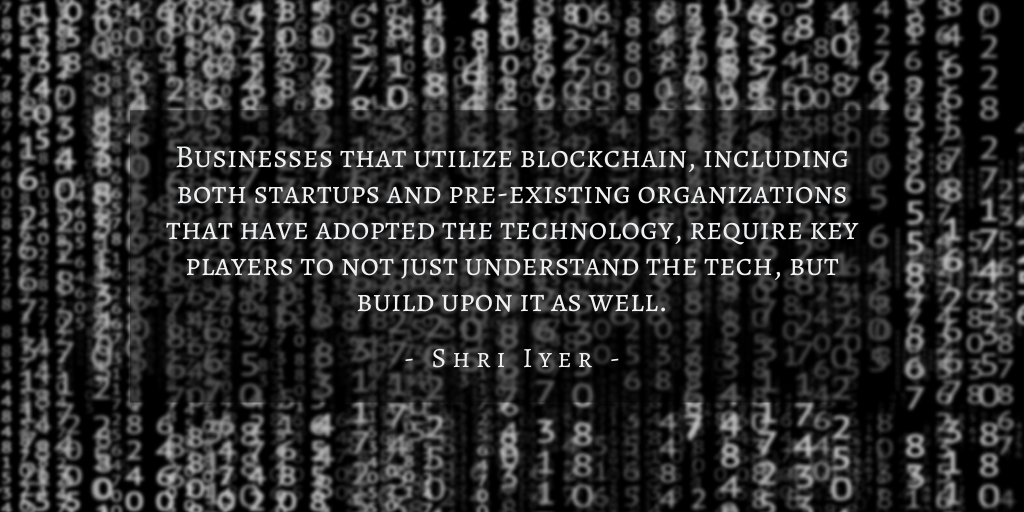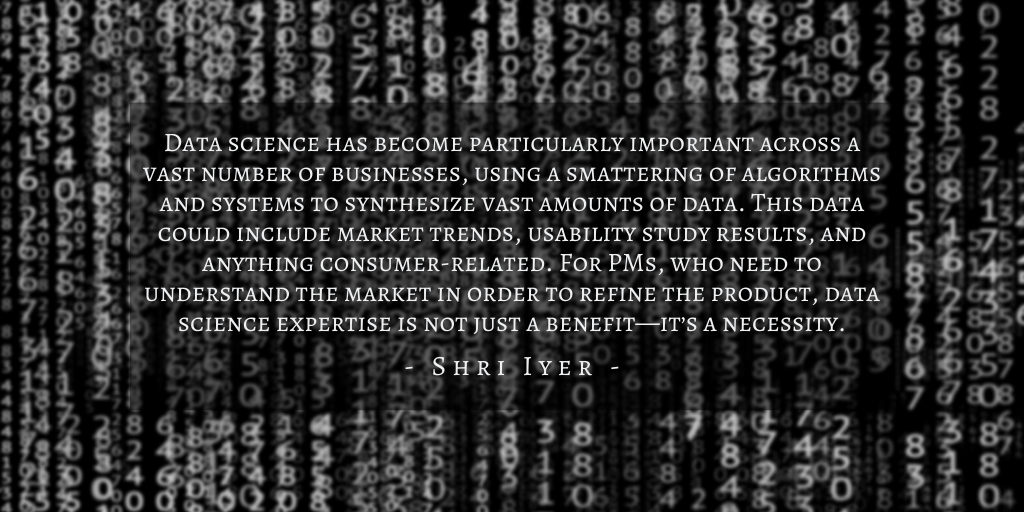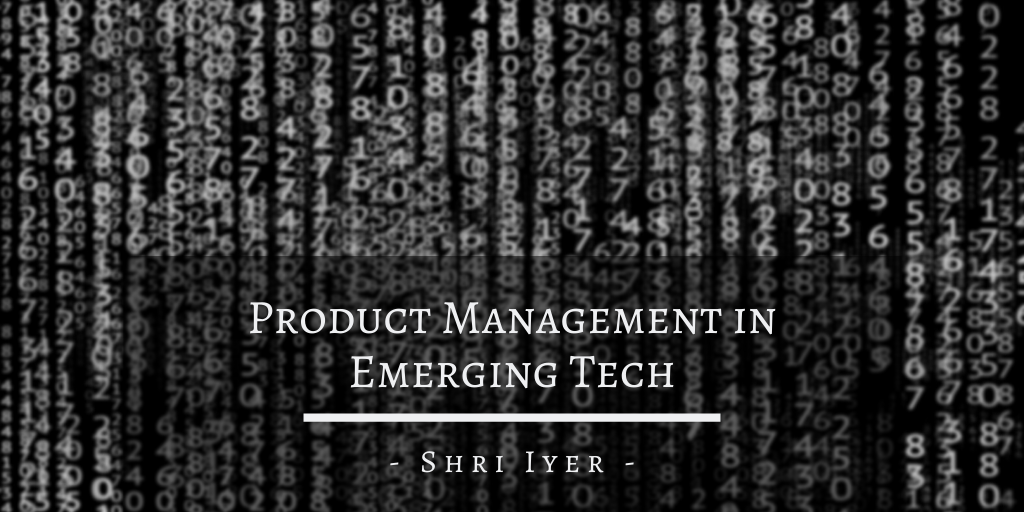While the idea of businesses and transactions has been around for centuries, Product Management is a much more recent development. As I mentioned in a previous blog post on the history of Product Management, PMs weren’t officially PMs until the 1930s, when Proctor & Gamble employee Neil McElroy put forth an initiative to hire employees focused on brand management. For nearly one hundred years since, PMs have had to adapt to the fast-paced world of business, accommodating technological, environmental, and social changes while balancing one key goal—advocating for a product from inception to distribution. While Product Management is relatively newer and ever-evolving, how do newness and evolution add value to companies in emerging tech?
According to QAT Global, there are several emerging technologies that may have an impact on how PMs do their jobs. Some of the key technologies are Artificial Intelligence, Cryptocurrencies, Big-Data analytics, Blockchain and Internet of Things (IoT).
Despite the breadth and depth of this list, that’s still a small sample of the countless technologies influencing today’s businesses. With all of this influential tech, and much more on the way, PMs must be prepared to handle advancements and figure out when to incorporate them seamlessly into their product plans. Let’s examine three important and diverse tech advancements from this global boom—blockchain, data science, and voice recognition—and how they serve to benefit PMs.
Blockchain
Since the inception of e-commerce in the 1990s, digital business has boomed. Brick-and-mortar stores have been forced to adapt, adopting a sink-or-swim mentality as retailers either establish their own online brands, or lag behind and vanish in the rearview mirror. It was during the next decade—2008, to be exact—that bitcoin entered the scene. This cryptocurrency was operable thanks to a technological innovation known as blockchain.
In a nutshell, blockchain acts as a digital ledger, storing transactional data in “blocks” that are interconnected to each other via a web of “chains.” Businesses have flocked to blockchain, which boasts high security through encrypted private information and decentralized control.

Blockchain, e-commerce, and cryptocurrency have drastically shaped the roles and responsibilities of Product Managers. Businesses that utilize blockchain, including both startups and pre-existing organizations that have adopted the technology, require key players to not just understand the tech, but build upon it as well. This is especially crucial for PMs, who must communicate with all stakeholders. In addition to learning all they can about sales, marketing, and design, PMs who work with blockchain and cryptocurrency must also understand the ever-evolving world of blockchain and how the software, which can be fairly complex at face-value, is aimed at broader audiences.
Just as blocks are connected by chains, the stages of a product’s journey are connected by a series of microtasks—microtasks that are laid out by a product roadmap. PMs with blockchain experience have cited the importance of breaking down individual features of tech- and software-heavy products to map product flow and understand the countless moving parts that affect user experience.
Blockchain adds plenty of benefits for businesses, both when conducting business and internal communications. Due to the high level of security for blocks along the chains, as well as the accessibility of blockchain networks, this software can be used on an internal basis for PMs and team members to store and search for data. The collaborative business world needs PMs who can be team players, and the collaborative capabilities of blockchain make it an ideal way of sharing information, especially amongst geographically distant team members.
Keep in mind that blockchain is just one small slice of the larger tech boom pie—the world of cryptocurrency, while widely used in business, is still fairly niche compared to all of the other technologies making their mark on global business practices. In fact, the use of blockchain and cryptocurrency is highly dependent on the capabilities of other growing tech, such as mesh networks and mobile money.
Data Science
The rise in business and consumer technology has brought with it a rise in STEM-related careers and industries. Data science has become particularly important across a vast number of businesses, using a smattering of algorithms and systems to synthesize vast amounts of data. This data could include market trends, usability study results, and anything consumer-related. For PMs, who need to understand the market in order to refine the product, data science expertise is not just a benefit—it’s a necessity.

Due to the depth and breadth of the data science tech ocean, PMs must decide where to start before diving in. One option is to focus on machine learning, particularly when and how to use it. Teams that have already looked to machine learning to complete microtasks need guidance for deciding when it’s appropriate to utilize machine learning, and how machines can accomplish different tasks. PMs are already in charge of producing roadmaps and delegating tasks, making them ideal candidates for deciding when to implement intensive tech; in this sense, PMs can implement machine learning as a supplementary element of the team, performing the minor, time-consuming tasks to give team members more flexibility with other involved parts of the process.
As data scientist and data product manager Trey Causey writes, “Working with data […] goes beyond understanding the results of experiments and reading dashboards—it requires a deep appreciation for what is possible and what will soon be possible by taking full advantage of the flow of data.”
In this sense, Causey continues, PMs must generate data strategies to supplement all other strategies laid forth in the product roadmap. In addition, PMs have to hone their abilities to transform abstract data into concrete ideas and development: “The data PM knows that data, models, and outputs aren’t enough—they still have to be product managers and bring these components back to the business model and their organization’s strategy.” In this regard, PMs who can balance these tasks offer a unique benefit to data science-reliant businesses—the benefit of breathing life into data and translating it from numbers on a screen to achievable tasks and unique concepts.
Voice Recognition
One major benefit of AI and bluetooth are their hands-free capabilities. Voice and speech recognition allow machines to understand auditory cues. They’re popular in the home, with Alexa and Siri offering general consumers hands-free assistance on the go, but they’re becoming a vital part of overall business practices.
Any PM can attest to the multitude of tasks they must complete in a given day. At the same time, clear and constant communication is a huge necessity for the job. Voice recognition offers a solution to this through automatic transcription. As mentioned in the previous blog post, some communication software comes with automatic transcribing, eliminating the need for meeting notes by automatically generating a script based on a video or voice call. In the context of off-shore PMs, last month’s blog topic, this could help PMs find information without listening to an hour-long call. For teams, though, this script could be sent out to everyone, including those who couldn’t make the meeting, as a means of highlighting key concepts and ideas, providing context to upcoming strategy.
In addition, PMs who have made great use of voice recognition may be inspired to implement it into their product. After all, voice recognition technologies are important for accessibility, helping to remove barriers that would otherwise prevent consumers from using a product. For instance, consider Vocca, a handy gadget that plugs into a lightbulb socket and can be turned on or off via voice command. Consumers with limited mobility, who may previously have struggled with a wall-mounted or lamp-embedded switch, are able to adjust the lighting of a room with ease.
Some of my past work as a PM has involved products that offer resume-writing services. Customers had to fill in lengthy questionnaires on their desktop. But people want to do more and more on their mobile and want to fill the questionnaire that provides details to their resume writer on mobile too. On mobile this is hard to do because there is not much typing or screen real estate. This is where intensive data fields can be filled using voice recognition and end-users can achieve the task of filling the questionnaire on their mobile phone. This concept can be extended to any type of questionnaire (another example being medical intake forms). This just goes to show: not only do these technologies assist PMs in doing their jobs, but they also inspire PMs to make their products more accessible and user-friendly.
As technology continues to shape the world of business, it is the role of the PM to understand how this technology works, and how it can be utilized for the benefit of a business’ product. Blockchain, data science, and microservices have come to the forefront of modern business, and each carries with it elements that tie together with what PMs are hired to do in the first place. If you see technology making its way into your workplace, welcome it! It’s the implicit job of the PM to reorient his- or herself to these changes and demonstrate the positive impact these technologies can offer any industry, company, or product.

